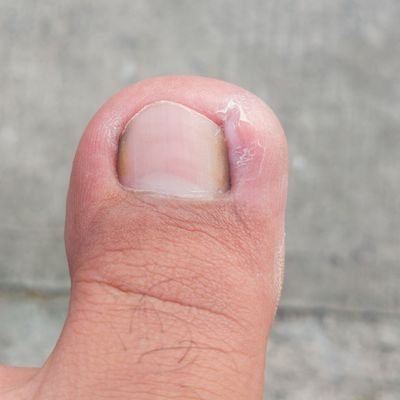Why Does This Ingrown Toenail Keep Coming Back?
If you’ve ever dealt with the discomfort of an ingrown toenail, you know how painful and annoying it can be. Having an ingrown toenail can interfere with your day-to-day life, even causing some activities to seem impossible! The bad news is that if you’ve dealt with it once, you’ll likely deal with it again.
Certain health conditions, like diabetes, can increase your chances of developing ingrown toenails, which occurs when the edge of your nail grows into the surrounding tissue. What results is pain, inflammation, and the potential for infections.
Why is it important to treat an ingrown toenail?
To many, an ingrown toenail can seem like a common, minor issue that does not need treatment. Some ignore them and hope they go away on their own. Even worse, some attempt “bathroom surgery” and try to fix it themselves. Untreated or improperly treated ingrown toenails can spread infections and become serious issues.
Staph, MRSA, and other infections can arise from ingrown toenails. The bacteria for these diseases live on your skin and an ingrown toenail acts as a way to introduce it into your body. In serious cases, an ingrown toenail can progress to a serious condition called gangrene. This condition requires surgery or amputation to remove dead or dying skin tissue.
How do I avoid ingrown toenails?
Most ingrown toenails are caused by an improper nail trimming technique. Many people want to trim their toenails in a rounded shape, but this can easily lead to an ingrown toenail.
It’s best to trim toenails straight across and not too short. The sides of the toenails should not be cut below the fleshy part of your toe. If you are not able to trim your toenails yourself, make an appointment with our office! Our staff are always here to assist.
Wearing too-tight shoes is another common culprit for ingrown toenails, especially ones that are recurring. If your shoes squeeze your toes together, it’s likely to cause the nail to protrude into the tissue. Avoid shoes like high heels and always check your kids’ shoes to make sure they fit them properly.
If you have diabetes, ingrown toenails are more likely to occur since diabetes can cause poor blood flow to your extremities. Check your feet regularly and keep regular appointments with your podiatrist. Your podiatrist is an essential member of your health care team!
Get help from the pros
If you’re dealing with an ingrown toenail or other foot or ankle issue, reach out to Precision Foot and Ankle Centers for professional, compassionate help. Board-certified podiatrist Dr. Eric Feit and his team of podiatrists are dedicated to providing expert level care that can improve your quality of life. Get in touch with our offices in Los Angeles, Torrance, and San Pedro to schedule an appointment today!

